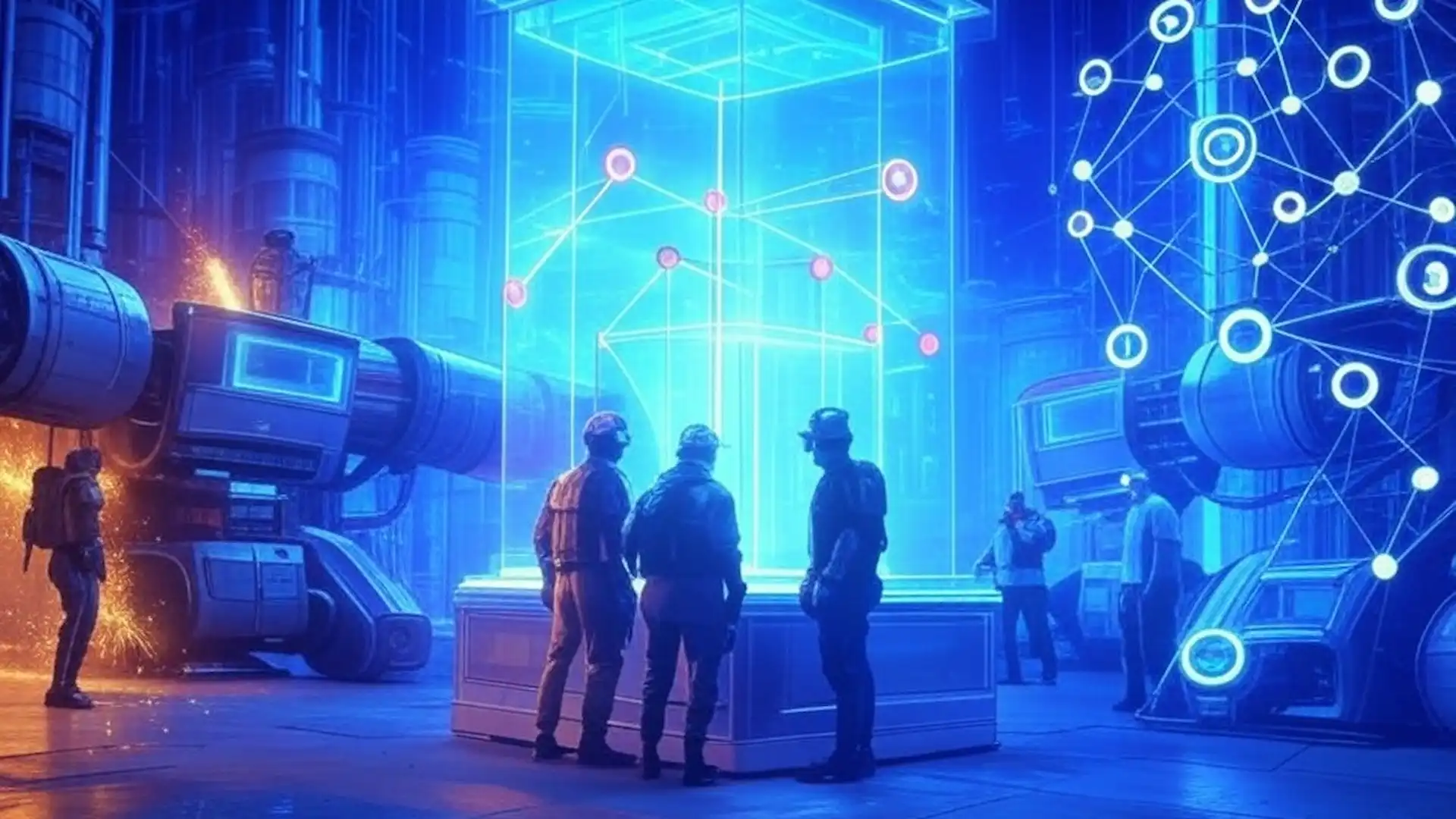Smart Contracts and Their Applications

In the evolving landscape of blockchain technology, smart contracts represent one of the most transformative innovations with far-reaching implications across industries. These self-executing agreements with the terms directly written into code are revolutionizing how we conduct transactions, establish trust, and automate processes. This guide explores smart contracts in depth, examining how they work and their diverse applications.
What Are Smart Contracts?
Smart contracts are self-executing programs stored on a blockchain that automatically run when predetermined conditions are met. Unlike traditional contracts that require third-party enforcement, smart contracts are executed by the blockchain network itself.

The concept was first proposed by computer scientist and legal scholar Nick Szabo in 1994, who described smart contracts as “a set of promises, specified in digital form, including protocols within which the parties perform on these promises.” However, it wasn’t until the launch of Ethereum in 2015 that smart contracts became practical and widely implemented.
How Smart Contracts Work
At their core, smart contracts function on an “if/when…then…” logic. When a pre-programmed condition is triggered, the smart contract executes the corresponding contractual action. Here’s a simplified breakdown of their operation:
1. Creation and Deployment
Developers write the smart contract code using programming languages like Solidity (for Ethereum), Rust (for Solana), or others depending on the blockchain platform. The code defines:
- The rules and conditions of the agreement
- The actions to take when conditions are met
- The data inputs needed for execution
Once written, the contract is compiled into bytecode and deployed to the blockchain.
2. Storage and Distribution
The deployed contract receives a unique address on the blockchain and is:
- Stored across all nodes in the blockchain network
- Assigned a public address that users can interact with
- Made immutable (cannot be altered once deployed)
3. Execution Process
The execution process follows these steps:
- Trigger Event: A user sends a transaction to the smart contract address
- Verification: The network verifies the transaction meets the requirements
- Execution: Every node executes the contract code with the same inputs
- Consensus: The network reaches consensus on the execution result
- State Update: The blockchain state is updated with the new information
- Event Emission: Notifications may be generated about the execution
4. Finalization
Once executed, the results of the smart contract are:
- Permanently recorded on the blockchain
- Cannot be reversed or altered
- Visible to all network participants (though the data itself might be encrypted)
Key Properties of Smart Contracts
Smart contracts possess several distinctive characteristics that set them apart from traditional agreements:
Trustlessness
Participants don’t need to trust each other or rely on intermediaries because:
- Contract execution is automatic based on code
- No party can manipulate the outcome
- The blockchain provides a neutral execution environment
Autonomy
Smart contracts operate independently after deployment:
- No need for manual activation
- Free from human intervention
- Self-executing based on predefined conditions
Accuracy
The precision of smart contracts comes from:
- Elimination of manual paperwork and processes
- Removal of human error in execution
- Exact programmatic interpretation of conditions
Efficiency
They improve process efficiency through:
- Automation of complex workflows
- Elimination of intermediaries
- Reduction in execution time from days/weeks to seconds/minutes
Security
Security is enhanced via:
- Cryptographic encryption
- Distributed storage across the network
- Immutability preventing tampering
Smart Contract Platforms
While Ethereum pioneered practical smart contracts, several blockchain platforms now support this functionality, each with different approaches:
Ethereum

As the first and most established smart contract platform, Ethereum offers:
- A Turing-complete programming language (Solidity)
- A robust ecosystem of development tools
- The largest community of developers
- Extensive documentation and resources
Solana
Known for high performance, Solana provides:
- Extremely fast transaction speeds
- Low transaction costs
- Smart contracts written in Rust
- A focus on scalability
Cardano

Taking a research-first approach, Cardano features:
- Formal verification methods for contract security
- The Plutus programming language (based on Haskell)
- Rigorous peer-reviewed development
- A focus on security and sustainability
Polkadot

With its interoperability focus, Polkadot offers:
- Cross-chain smart contract functionality
- The ability to create custom blockchains (parachains)
- WebAssembly-based smart contracts
- Shared security across the network
Avalanche

Emphasizing speed and customizability, Avalanche provides:
- Sub-second transaction finality
- Support for Ethereum Virtual Machine (EVM)
- Multiple custom virtual machines
- High throughput for smart contract execution
Real-World Applications of Smart Contracts
Financial Services
- Lending and Borrowing: Platforms like Aave and Compound enable cryptocurrency lending without intermediaries
- Decentralized Exchanges: Uniswap and SushiSwap facilitate token trading through automated market makers
- Insurance: Protocols like Nexus Mutual provide coverage against smart contract failures or hacks
- Derivatives: Synthetix and dYdX offer synthetic assets and trading instruments
- Stablecoins: Dai maintains a stable value through smart contract mechanisms
Supply Chain Management
Smart contracts enhance supply chain transparency and efficiency through:
- Product Tracking: Automated recording of product movement across supply chains
- Quality Assurance: Verification of product conditions through IoT device integration
- Automated Payments: Instant payment release when goods are confirmed delivered
- Supplier Reputation: Immutable records of supplier performance and compliance
Healthcare
In healthcare, smart contracts facilitate:
- Patient Data Management: Secure, patient-controlled sharing of medical records
- Clinical Trials: Transparent tracking of trial protocols and results
- Supply Chain Verification: Ensuring authenticity of pharmaceuticals
- Insurance Claims: Automated processing of health insurance claims
Real Estate
The property sector benefits from smart contracts via:
- Property Transfers: Automating the process of transferring ownership
- Rent Payments: Automatic collection and distribution of rental payments
- Escrow Services: Holding funds until contract conditions are met
- Fractional Ownership: Enabling multiple investors to own portions of properties
Intellectual Property and Content Creation
Creative industries leverage smart contracts for:
- Royalty Distribution: Automatic payment to creators when their work is used
- Digital Rights Management: Enforcing usage rights for digital content
- Content Licensing: Self-executing licenses for content use
- Proof of Creation: Timestamped evidence of original authorship
Gaming and Digital Collectibles
The gaming world has embraced smart contracts through:
- Non-Fungible Tokens (NFTs): Unique digital assets representing game items or artwork
- Play-to-Earn Models: Games where players earn cryptocurrency through gameplay
- Virtual Land Ownership: Decentralized ownership of virtual real estate
- Cross-Game Assets: Items that can be used across multiple game environments
Challenges and Limitations
Despite their potential, smart contracts face several significant challenges:
Technical Limitations
- Code Vulnerabilities: Once deployed, bugs can’t be easily fixed
- Oracle Problem: Reliance on external data sources introduces potential points of failure
- Scalability Issues: High network traffic can lead to congestion and high fees
- Storage Constraints: Blockchain storage is expensive, limiting complex applications
Legal Considerations
- Regulatory Uncertainty: Evolving regulatory frameworks create compliance challenges
- Legal Recognition: Questions about the legal enforceability of smart contracts
- Jurisdiction Issues: Determining which laws apply to distributed applications
- Liability Questions: Unclear responsibility when smart contracts malfunction
Practical Challenges
- User Experience: Complex interfaces can limit mainstream adoption
- Educational Barriers: Requires specialized knowledge to develop and interact with
- Integration Difficulties: Challenges connecting with existing business systems
- Cost Fluctuations: Volatile transaction fees can make costs unpredictable
The Future of Smart Contracts
As the technology matures, several trends are shaping the evolution of smart contracts:
Technological Advancements
- Layer 2 Solutions: Scaling technologies like Optimistic Rollups and Zero-Knowledge Proofs
- Cross-Chain Functionality: Interoperability between different blockchain networks
- Privacy Features: Confidential smart contracts that protect sensitive data
- Formal Verification: Mathematical proof techniques to verify contract correctness
Expanding Use Cases
- Decentralized Autonomous Organizations (DAOs): Self-governing entities running on smart contracts
- Tokenization of Real-World Assets: Representing physical assets on blockchain
- Social Impact Applications: Transparent charity funding and impact tracking
- Governmental Applications: Voting systems, public records, and service delivery
Integration Trends
- Smart Contract Templates: Standardized contracts for common use cases
- Low-Code Development: Tools that make contract creation accessible to non-developers
- Legacy System Bridges: Integration with traditional enterprise software
- IoT Connectivity: Smart devices triggering contract execution
Best Practices for Smart Contract Development
Security Considerations
- Rigorous Testing: Comprehensive testing in various scenarios and conditions
- Code Audits: Professional security audits before deployment
- Formal Verification: Mathematical proof of code correctness
- Known Vulnerabilities: Awareness of common attack vectors
Design Principles
- Simplicity: Keeping contracts as simple as possible
- Modularity: Breaking functionality into smaller, manageable components
- Upgradeability Patterns: Designs that allow for future improvements
- Gas Optimization: Efficient code to minimize transaction costs
Development Process
- Version Control: Tracking changes throughout development
- Documentation: Thorough documentation of contract functionality
- Testing Environment: Using testnets before mainnet deployment
- Gradual Rollout: Limited release before full deployment
Conclusion
Smart contracts represent a fundamental shift in how agreements can be created, executed, and enforced in the digital age. By removing intermediaries and automating execution, they offer unprecedented efficiency, transparency, and trustlessness across numerous applications.
As the technology continues to mature and overcome existing limitations, smart contracts are likely to become an increasingly integral part of business operations, financial services, and everyday transactions. Understanding their capabilities, limitations, and best practices is essential for anyone looking to leverage this powerful innovation in blockchain technology.
Whether you’re a developer, business leader, or simply interested in the future of digital interactions, smart contracts offer a glimpse into a more automated, efficient, and transparent world of agreements and transactions.


